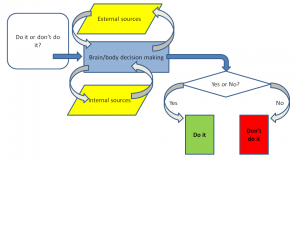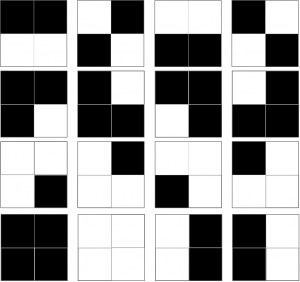
The pattern that signifies Intelligence?
Winston Ewert has a post at Evolution News & Views that directly responds to my post here, A CSI Challenge which is nice. Dialogue is good. Dialogue in a forum where we can both post would be even better. He is extremely welcome to join us here 🙂
In my Challenge, I presented a grey-scale photograph of an unknown item, and invited people to calculate its CSI. My intent, contrary to Ewert’s assumption, was not:
…to force an admission that such a calculation is impossible or to produce a false positive, detecting design where none was present.
but to reveal the problems inherent in such a calculation, and, in particular, the problem of computing the probability distribution of the data under the null hypothesis: The eleP(T|H)ant in the room







